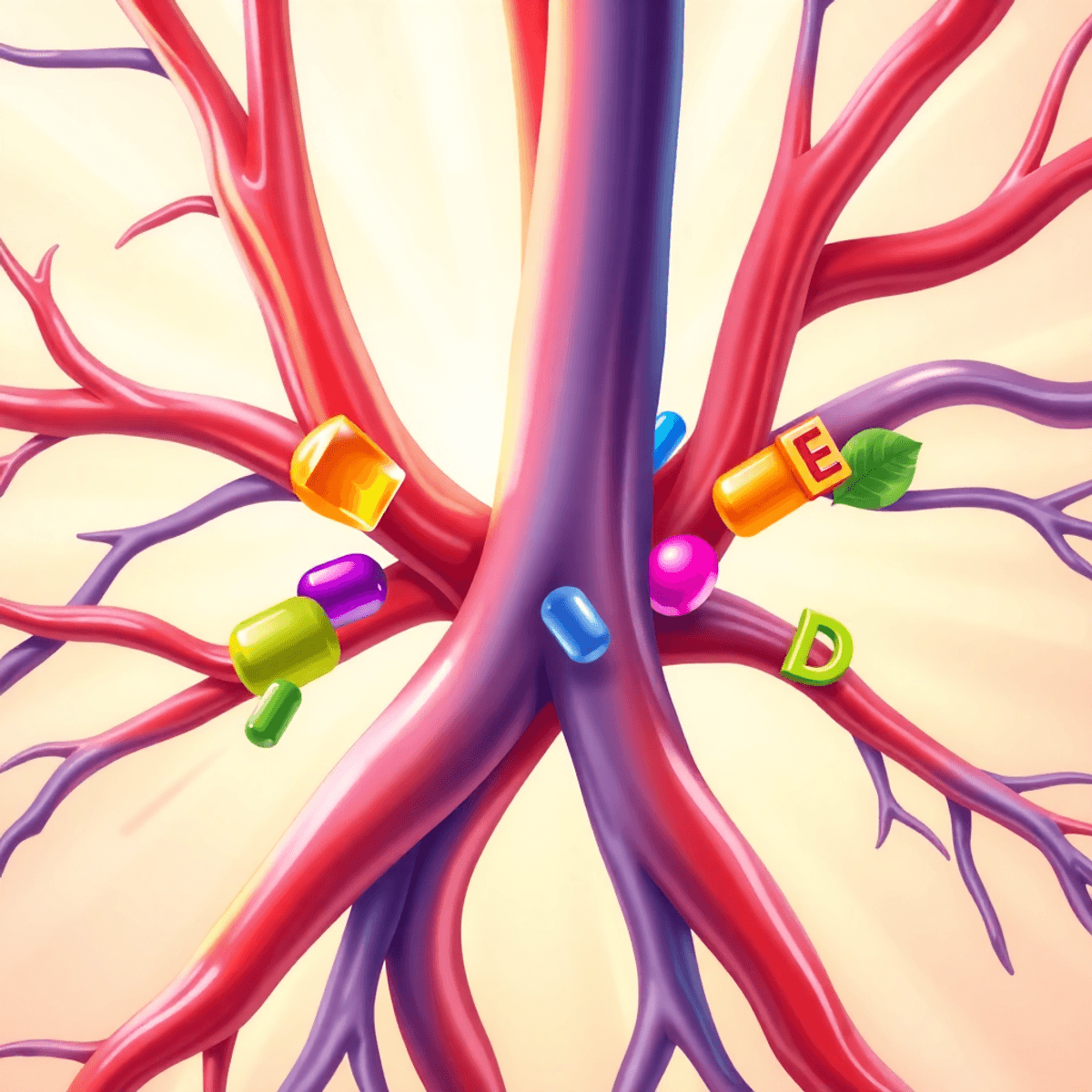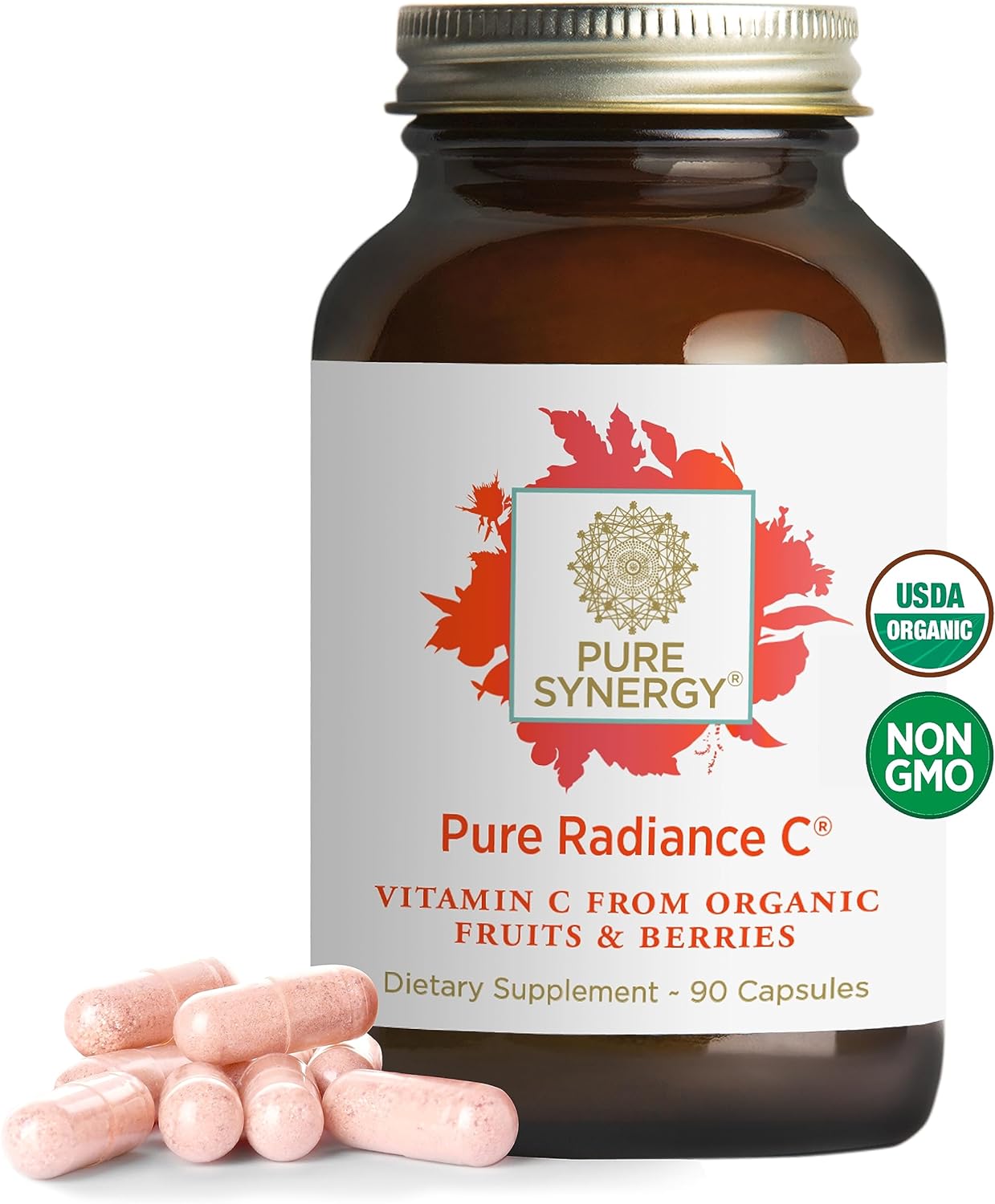Understanding the connection between vitamins and dental health can transform your approach to oral hygiene. Vitamins play a crucial role in maintaining strong teeth and healthy gums, acting as protective agents against oral diseases. Incorporating the best vitamins for dental health from sources like NatureZen into your daily routine can significantly enhance your oral well-being.
1. Balanced Diet
A well-rounded diet rich in essential vitamins is imperative for optimal oral health. These nutrients not only fortify your teeth but also boost gum health and prevent dental issues. For instance, Vitamin D3, known for its high potency, plays a vital role in immune support and bone health, which indirectly benefits dental health.
2. Key Takeaway
This article delves into the top vitamins that can improve your dental health. You’ll discover practical ways to incorporate these nutrients into your daily meals through easy meal prep, paving the way for a healthier smile.
Explore how specific vitamins contribute to dental health and make informed choices about your diet to support strong teeth and gums. It’s also worth noting that certain vitamins can provide additional health benefits; for example, garlic has been recognized for its potential in supporting cardiovascular health while also boosting overall immune function with natural immune support.
The Role of Vitamins in Dental Health
Vitamins are crucial for maintaining dental health. They are essential nutrients that help keep your teeth and gums strong and healthy. When you consume enough vitamins, it creates an environment in your mouth where your oral structures can thrive, reducing the chances of getting dental diseases.
How Vitamins Contribute to Dental Health
Vitamins play several important roles in supporting oral health:
- Nutrient Contribution: Vitamins are necessary for various processes in the body that promote oral health. They help develop and maintain teeth, gums, and other tissues in the mouth. By providing the building blocks for tissue regeneration and repair, vitamins contribute to a healthy mouth.
- Disease Prevention: Eating a balanced diet rich in vitamins is essential for preventing dental problems. Nutrients like calcium, vitamin D, and phosphorus work together to strengthen tooth enamel, making it less prone to decay. At the same time, antioxidants such as vitamin C reduce inflammation and improve gum health.
Key Vitamins for Dental Health
Here are some key vitamins that are beneficial for your dental health:
- Calcium: Strengthens tooth enamel.
- Vitamin A: Supports enamel growth and saliva production.
- Vitamin C: Promotes gum health through collagen synthesis.
- Vitamin D: Enhances calcium absorption for strong teeth and bones.
- Vitamin K: Assists in binding calcium to teeth.
By knowing these roles of vitamins, you can make conscious choices about what you eat to improve your dental health. This not only makes your smile brighter but also contributes to your overall well-being.
Additional Lifestyle Changes for Better Dental Health
In addition to eating a vitamin-rich diet, certain lifestyle changes can further enhance your dental health:
- Exercise Regularly: Engaging in high-intensity interval training can improve blood circulation throughout your body, including your mouth. This promotes better delivery of nutrients to your oral tissues.
- Consider Energy Boost Supplements: If you find it challenging to maintain a balanced diet consistently, energy boost supplements may help fill any gaps in your nutrient intake.
- Use Aromatherapy Diffusers: Incorporating an aromatherapy diffuser with specific essential oils into your routine may provide relaxation benefits that indirectly support oral health by reducing stress-related habits like teeth grinding.
- Explore Natural Remedies: Valerian root is known for its calming effects; exploring this natural remedy could be beneficial as well.
By combining these lifestyle changes with a vitamin-rich diet, you can take proactive steps towards improving both your dental health and overall well-being.
1. Calcium
The Role of Calcium in Oral Health
Calcium is a critical mineral when it comes to maintaining robust oral health. It plays a pivotal role in forming the very structure of your teeth, contributing significantly to the strength and resilience of tooth enamel. This protective outer layer acts as a shield against decay and erosion, ensuring that your teeth remain strong and healthy.
Sources of Calcium for Strong Teeth
Incorporating calcium-rich foods into your diet is essential for supporting tooth structure and enamel strength. Some excellent sources include:
- Dairy Products: Milk, cheese, and yogurt are not only delicious but also rich in calcium, providing an accessible way to boost your intake.
- Leafy Greens: Vegetables such as broccoli, kale, and spinach pack a calcium punch while offering additional nutritional benefits.
- Fish: Certain types of fish, like salmon and sardines, offer calcium alongside heart-healthy omega-3 fatty acids.
Ensuring an adequate intake of calcium through these sources can significantly enhance your dental health by fortifying your teeth’s natural defenses.
Interestingly, some organic products such as castor oil have been suggested to support overall health, which may indirectly benefit oral health as well. Additionally, maintaining cardiovascular health is crucial since there is a strong link between heart health and oral health.
2. Vitamin A
Vitamin A is one of the best vitamins for dental health because it plays a vital role in developing enamel and producing saliva. This vitamin helps with the growth and maturation of enamel, which is the hard outer layer that protects teeth from decay and damage. It also assists in producing saliva, which is important for maintaining oral hygiene by neutralizing acids and rinsing away food particles.
Food Sources Rich in Vitamin A:
- Liver: A powerhouse of Vitamin A, providing a dense supply needed for healthy teeth.
- Egg Yolks: Another excellent source, offering essential nutrients that promote oral health.
- Orange Fruits and Vegetables: Options like carrots, sweet potatoes, and pumpkins are packed with beta-carotene, a precursor to Vitamin A.
Including these foods in your diet helps ensure you get enough Vitamin A to support strong enamel growth and efficient saliva production.
3. Vitamin C
Vitamin C is important for making collagen, which is necessary for keeping gum tissue strong and healthy. This vitamin helps maintain the connective tissues in the gums, reducing inflammation and lowering the chances of gum disease.
Foods Rich in Vitamin C
Here are some foods that are high in vitamin C:
- Citrus Fruits: Oranges, lemons, and grapefruits are well-known for their high vitamin C content.
- Strawberries: Not only delicious but also packed with this vital nutrient.
- Bell Peppers: Especially red bell peppers, they offer a significant amount of vitamin C.
Including these foods in your diet can help keep your gums healthy. Vitamin C’s antioxidant properties also protect against oral infections, making it essential for dental health.
4. Vitamin D
Vitamin D plays a crucial role in calcium absorption, making it indispensable for maintaining strong teeth and bones. Without adequate vitamin D, your body struggles to utilize calcium effectively, which is essential for developing and preserving robust dental structures.
Get Sunlight for Vitamin D
Sunlight exposure is a natural and effective way to boost your vitamin D levels. Just a few minutes outside each day can make a significant difference.
Include Vitamin D Foods in Your Diet
However, for those with limited sun exposure or during the winter months, it’s important to turn to dietary sources. Consider incorporating these foods into your diet:
- Fatty Fish: Salmon, mackerel, and sardines are excellent sources of vitamin D.
- Fortified Foods: Many dairy products, orange juice, and cereals are fortified with vitamin D, providing an easy way to enhance your intake.
Together, these strategies ensure that your teeth remain strong and resilient against decay and other dental issues.
5. Vitamin K & Other Essential Nutrients for Dental Health
Vitamin K is crucial for maintaining healthy bones and gums. It activates proteins that help bind calcium to bones and teeth, keeping them strong. To include Vitamin K in your diet, eat leafy greens like kale and spinach, or consider trying beauty supplements that may contain this important nutrient.
Another important nutrient for dental health is phosphorus. This mineral works together with calcium to build and maintain strong teeth and bones. You can find phosphorus in various foods such as seafood, meat, and dairy products. Making sure you get enough phosphorus supports the structure of your teeth.
While not directly linked to dental health, potassium indirectly helps by supporting overall bone density. Higher bone density can strengthen dental structures, providing a solid foundation for teeth. Common foods like bananas and potatoes are good sources of potassium.
By understanding how these nutrients—Vitamin K, phosphorus, and potassium—work together, you can improve your dental health routine. These nutrients play a vital role in keeping your teeth and gums strong and healthy. Additionally, incorporating certain health tips into your daily life can further enhance your well-being.
Balancing Your Diet for Optimal Dental Health
A balanced diet plays a crucial role in maintaining good dental health. It ensures that your teeth and gums receive the essential vitamins they need to stay healthy. By including a variety of nutrients in your diet, you can help keep your dental structures strong and prevent oral diseases.
Tips on Incorporating Essential Vitamins into Daily Meals:
- Calcium-Rich Foods: Include dairy products such as milk, cheese, and yogurt in your meals. Non-dairy options like almond milk or tofu can also provide calcium. For those looking to manage their weight while achieving dental health, incorporating slimming teas for diet might be beneficial.
- Vitamin A Sources: Add liver or egg yolks to your breakfast routine. Integrate orange-colored fruits and vegetables like carrots and sweet potatoes into salads or side dishes.
- Boosting Vitamin C Intake: Citrus fruits like oranges and grapefruits are excellent snacks. Strawberries can be added to smoothies or cereals, while bell peppers enhance any stir-fry.
- Enhancing Vitamin D Levels: Spend time outdoors in sunlight for natural Vitamin D. Include fatty fish like salmon or mackerel in your weekly meal plan. If you’re unable to get enough sunlight, consider using home workout equipment to maintain an active lifestyle which can help with vitamin absorption.
- Incorporating Vitamin K: Leafy greens such as kale and spinach can be used in salads or as sides to main dishes.
Taking these steps ensures a harmonious blend of essential vitamins, reinforcing your dental health while promoting overall well-being. A thoughtful approach to meal planning enhances not just oral health but contributes to a holistic lifestyle. Additionally, if you’re interested in tracking your fitness journey, utilizing Amazon fitness gear could provide valuable assistance.
Foods to Limit for Better Dental Health
Sugary foods and acidic foods pose significant threats to dental health. Sugar interacts with bacteria in the mouth, creating acids that can erode tooth enamel, leading to cavities and decay. Similarly, acidic foods and drinks can weaken enamel, making teeth more susceptible to damage and sensitivity.
Healthier Alternatives:
- Replace Sugary Snacks: Opt for fresh fruits like apples or pears instead of candies or sugary snacks. These fruits not only satisfy sweet cravings but also help stimulate saliva production, which naturally cleanses the mouth.
- Choose Water Over Acidic Beverages: Instead of sodas or fruit juices, drink water or herbal teas that are less likely to harm your enamel. Water also helps wash away food particles and maintains moisture levels in the mouth.
- Go for Whole Grains: Swap out refined carbohydrates like white bread with whole grains that contain less sugar and provide nutrients beneficial for overall health.
Maintaining awareness of these choices supports both oral and overall health, promoting a balanced approach to diet and dental care. For instance, incorporating health-improvement foods into your diet can significantly benefit your dental health. Similarly, embracing a wellness lifestyle can further enhance your overall well-being.
Conclusion: A Holistic Approach to Dental Care with Vitamins as Allies
Taking care of your oral health requires more than just brushing and flossing. By adopting a holistic approach that includes healthy eating habits and regular dental care, you can make a significant difference in the health of your teeth and gums.
Incorporating the best vitamins for dental health into your diet not only strengthens your teeth and gums but also improves your overall well-being. Here’s what you can do:
- Adopt a balanced diet rich in essential nutrients.
- Complement your diet with regular dental check-ups and proper oral hygiene.
By staying committed to these practices, you’ll be on your way to a lifetime of strong and healthy smiles.
Shop 100 years of value with Botanic Choice providing high quality natural formulas, beauty, supplements and vitamins for Generations of health.Discover more from NatureZen Market
Subscribe to get the latest posts sent to your email.












Artical is realy helpful, I did not know vitamins is so importent for dental health. I think adding foods rich in these vitamins can help me improve my teeth and gum condition. Thanks for sharing!